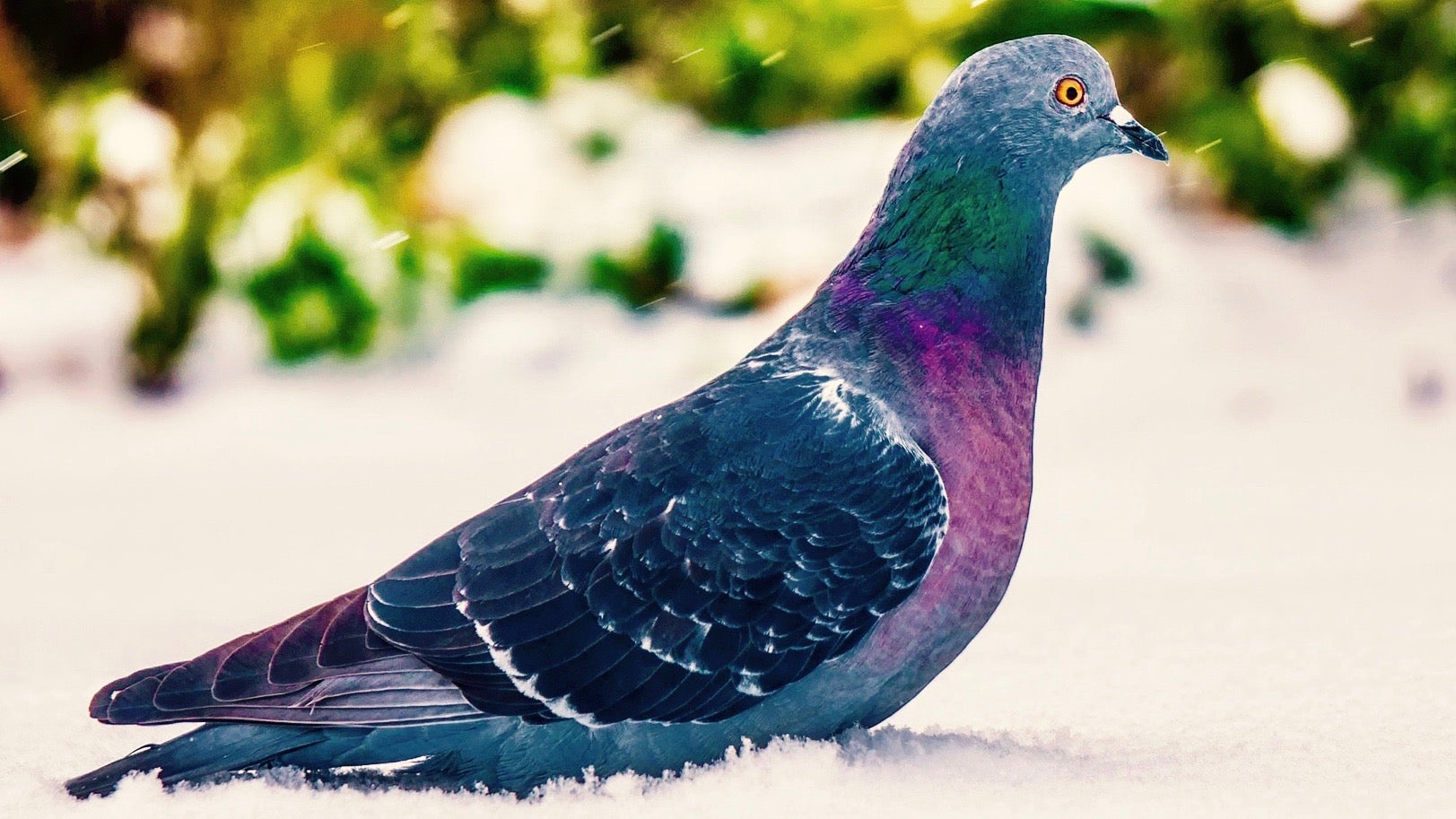Pigeons are smart enough to perceive abstract concepts like time and space
Pigeons are probably not thinking at the level of philosophers. But we now know their bird brains can handle the abstract concepts of time and space. They even seem to experience these abstractions quite like humans.


Pigeons are probably not thinking at the level of philosophers. But we now know their bird brains can handle the abstract concepts of time and space. They even seem to experience these abstractions quite like humans.
Neuroscience and cognitive research show that, though we’re not conscious of it psychologically, humans perceive time in relation to space. The same goes for elephants, rhesus monkeys, and apparently pigeons. In a study published in Current Biology on Dec. 4, scientists at the University of Iowa report that after testing pigeons’ ability to perceive these abstractions, they discovered the birds get the concepts and connect them—though they do it through different cognitive mechanisms than us humans.
The team tested pigeon cognition by placing the birds in front of computers screens, and showing them a horizontal line on the screen, either short (6 cm) or long (24 cm). When the birds saw a short line, the scientists rewarded them with food for pecking at one symbol and when they saw the long line, the birds got a treat for pecking at another symbol. This established the “correct” answer and a means for the birds to “report” their responses to the visual promps. The tests then got trickier and more difficult, adding spatial and temporal directions. For example, the lines would show up as shorter or longer than they did originally and would be displayed for longer or shorter periods of time.
In studies on humans, researchers have found that the more prolonged a line appeared on screen, the longer, spatially, people said that line was. Similarly, the longer a line was from end to end spatially, the longer, temporally, people reported that the line had appeared on screen. This indicates that for people, space and time are interdependent concepts.
Research on rhesus monkeys shows they respond like humans to such tests, suggesting the psychological interdependence of space and time isn’t uniquely human. But monkeys and humans, both primates, share key neural structures like a cerebral cortex.
Pigeons don’t have the same cognitive mechanisms yet they respond similarly to space and time tests. They even seem to experience the same conceptual interdependence as monkeys and humans, says cognitive psychologist Edward Wasserman, the lead author on the study. His team found that pigeons, like people, perceived a connection between the length of the lines and passage of time. “Remarkably, pigeons behaved just as did humans and monkeys,” Wasserman says.
“This surprising interdependence violates the belief that—at least psychologically—space and time are independent dimensions,” Wasserman says.
People’s higher-level thinking—musing about philosophy, say, and understanding abstractions like space and time—happens in the parietal cortex, which is part of the cerebral cortex. But pigeons don’t have a parietal cortex, so they’re processing these concepts somewhere else, the psychologist explains.
The researchers posit that there may be a common evolutionary mechanism in the central nervous system shared by early primates and birds that allows the pigeons to handle complex cognition without seeming to have the appropriate mechanisms. Wasserman believes the results indicate that the parietal cortex isn’t necessarily the key to abstraction in all animals as was previously thought. “The cognitive prowess of birds is now deemed to be ever closer to that of both human and nonhuman primates,” he said in a University of Iowa statement.